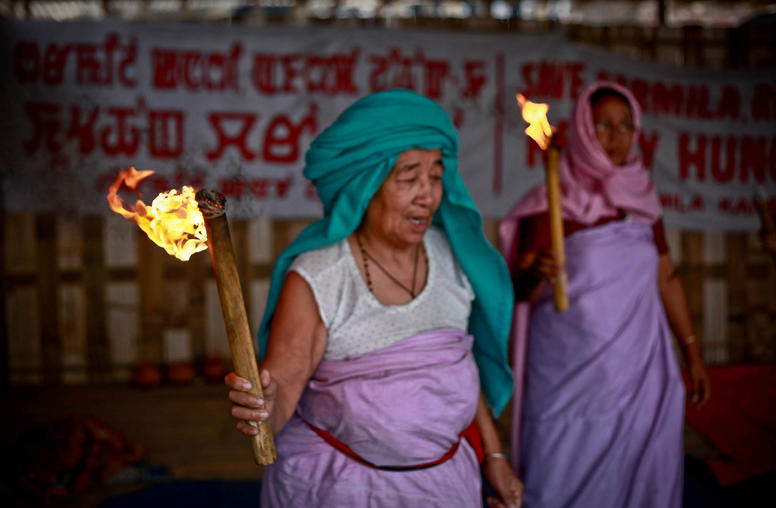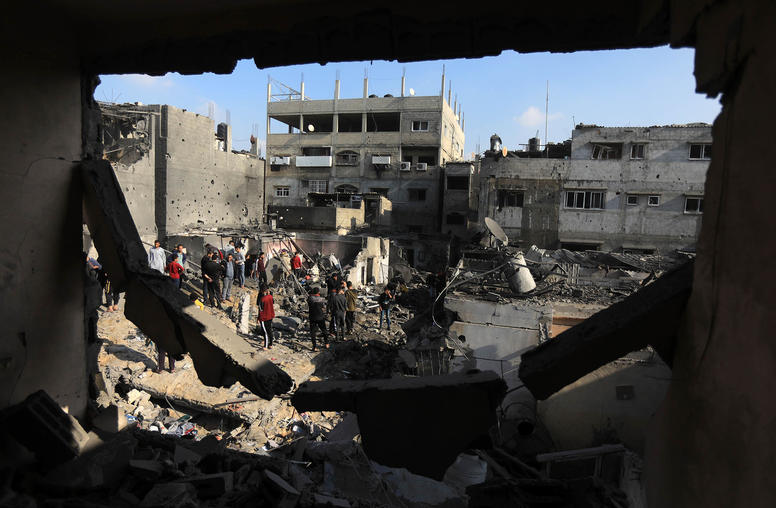PeaceCon@10
Covid, Climate, and Conflict: Rising to the Challenges of a Disrupted World
For 10 years, the annual PeaceCon conference has offered a dynamic platform for frontline peacebuilders, policymakers, philanthropists, and private sector and civil society leaders to engage in meaningful dialogue and develop substantive plans for action. In the face of the COVID-19 pandemic, climate change, migration, authoritarian resurgence, disinformation, and a crumbling international order, the field of peacebuilding and conflict resolution is facing a profound reckoning. PeaceCon@10: COVID, Climate, and Conflict: Rising to the Challenges of a Disrupted World, will explore how the field can address these pressing short and long-term challenges to achieve a more peaceful and secure world.
Join USIP, in partnership with the Alliance for Peacebuilding, as we kickstart PeaceCon@10 with remarks by Amina J. Mohammed, Deputy Secretary-General of the United Nations, and a plenary panel discussion on January 26, 2022. The discussion will address the relationship among climate change, conflict, and fragility, and consider strategies for the international community to address the peace and security implications of these issues as well as the ongoing pandemic. Following a series of breakout sessions hosted by the Alliance for Peacebuilding, participants will re-join USIP for a fireside chat with closing keynote speaker Robert Jenkins of USAID.
Click the link above to register for PeaceCon@10 Opening Day Plenary Sessions. To learn more about and register for the concurrent breakout sessions and workshops on Day 1 and additional content on Days 2 and 3, please visit the AfP conference website.
Agenda: AfP-USIP Plenary Session
9:00am – 10:30am
Welcome Remarks
- Lise Grande
President & CEO, U.S. Institute of Peace - Liz Hume
Executive Director, Alliance for Peacebuilding - Julia Roig
Board Chair & Executive Committee Member, Alliance for Peacebuilding
Keynote Address
- Amina J. Mohammed
Deputy Secretary-General, United Nations; Chair, United Nations Sustainable Development Group
High Level Panel: Rising to the Challenge of Climate Change: How the Peacebuilding Community Can Help Fragile Societies Manage Coming Disruptions
- Ambassador Frederic Gateretse-Ngoga, introductory remarks
Head of Conflict Prevention and Early Warning Division, African Union Commission - Polly Byers
CEO, Karuna Center for Peacebuilding - Gillian Caldwell
Agency Climate Change Coordinator and Deputy Assistant Administrator, USAID - Patrick Youssef
Regional Director, Africa, International Committee of the Red Cross - Andrew Revkin, moderator
Director, Initiative on Communication Innovation and Impact, The Earth Institute, Columbia University
4:00pm – 5:00pm: Closing Keynote: Hope Springs Eternal: USAID’s CPS Bureau Forges a New Approach
- Robert Jenkins
Assistant to the Administrator, Bureau for Conflict Prevention and Stabilization, USAID - Lise Grande,
President & CEO, U.S. Institute of Peace - Liz Hume, moderator
Executive Director, Alliance for Peacebuilding
[Note: This registration page provides access only to the free high-level plenary sessions on Day 1 of the conference. To register for the concurrent breakout sessions and workshops on Day 1 and for the conference sessions on Day 2-3 please register separately here.]



